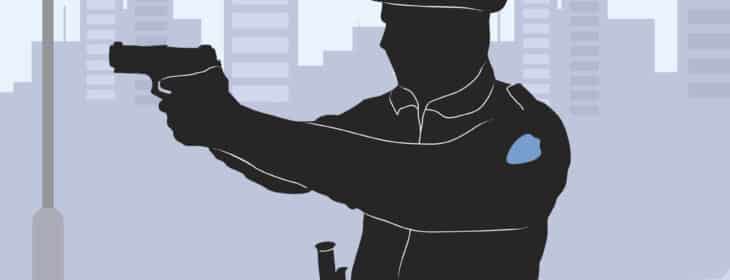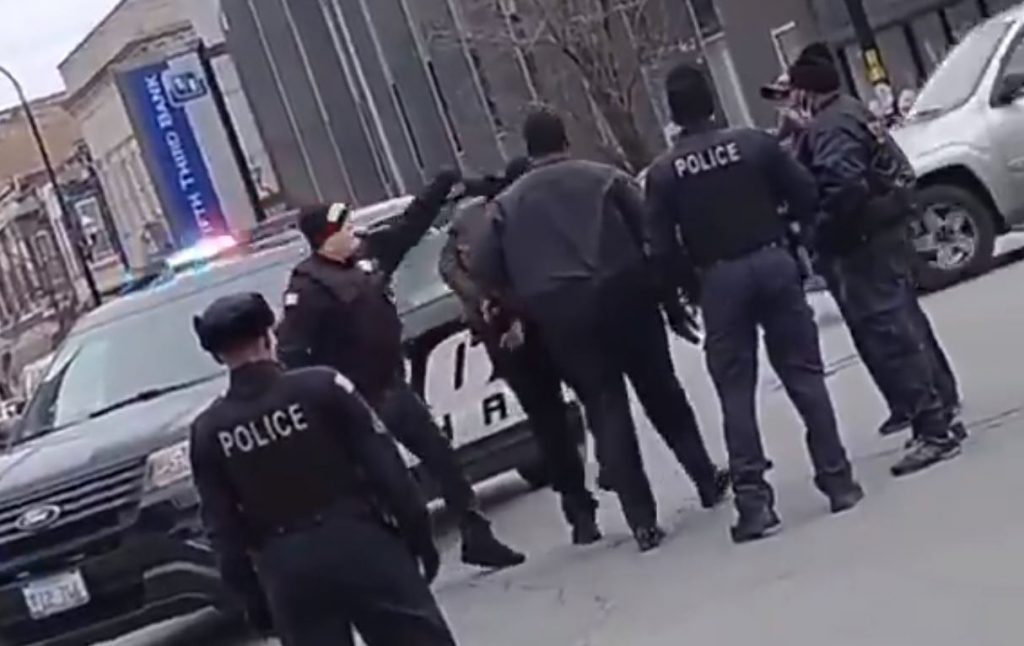
In 2021, Harvey police arrested a security guard who sucker-punched a handcuffed suspect. When officers (and security guards) use excessive force, they may unnecessarily harm someone, or sometimes even kill them.
There’s no excuse for excessive force, whether a person is a police officer or a privately-hired security guard. While Harvey police officers were arresting a person, a private security guard struck him in the face. Harvey police quickly arrested the security guard for this blatant act.

This case illustrates the importance of police efforts to stop the use of excessive force. Their swift action in this case is a step in the right direction. But what does it mean to use excessive force in the first place?
A police officer who uses more force than is reasonably necessary under what they call “the totality of the circumstances” (based on the officer’s knowledge) uses excessive force.
What is reasonably necessary force?
In short, it depends on the situation. Reasonable force in one situation might be completely unreasonable in another.
An officer who uses significant force simply because a suspect verbally insulted him would likely be guilty of using excessive force. But an officer who shoots a subject who he or she reasonably believes is pointing a gun at the officer or someone else would likely not be guilty of using excessive force, as the force would be considered reasonably necessary under the circumstances.
The level of reasonably necessary force rises and falls with specific situation confronting the officer.
But, when that conduct is unreasonable, police officers must be held accountable. And that goes for security guards, too.
Security guards can be sued for using excessive force while on their jobs. But that claim would likely be a personal injury claim rather than a civil rights claim, because generally, security guards do not act under color of law.
In other words, security guards are not sworn police officers who have special authority and are sworn to uphold the law, unless the security guard is also a police officer.
Often, off-duty police officers earn extra money working as private security guards. Depending on the specific facts of the case, a plaintiff may be able to establish that the security guard was acting in his capacity as a sworn police officer when he used force. Remember, police officers are authorized to execute and enforce the law if they believe a crime is being committed, even if they are off-duty. So if you or someone you know has been injured by a security guard or an off-duty police officer, consult a lawyer immediately.
Like the guard here, a security guard who uses excessive force should be charged with battery. If it turns out the security guard was a sworn police officer, even if he was off-duty, the person he punched may have a civil rights claim against him and the municipality that employs him.
Bottom Line: just like police officers, security guards are not above the law.
Here, Harvey Police acted swiftly. As soon as the guard punched the hand-cuffed man, the police grabbed him.
Harvey Police could have easily allowed the security guard to go free, but they did not. They made sure to hold him accountable for his actions.
Just because someone is in uniform, this does not permit that person to use unnecessary force on someone else.
The security guard’s “cheap shot” was unwarranted and could hardly be deemed reasonably necessary. The police quickly arrested him after his foolish move.
And now he faces criminal battery and illegal possession of a firearm charges.
Police brutality is a result of excessive force. Curbing it starts with police officers’ conduct first, and the police’s response here should symbolize significant progress.
Per the Chicago Sun Times, Harvey Police Chief Robert Collins put it nicely: “We wanted to change the narrative. No excessive force.”
The real test for Harvey, or any other police department, is whether they are willing to uphold this standard with their own officers as well as private actors.
Make no mistake: excessive force is wrong, and police need to continue their efforts to curb it. In this case, Harvey police arrested a security guard who sucker-punched a handcuffed suspect. The arrest is particularly notable because it is so rare.
Would this have happened if the offender was a fellow police officer? We can only hope. True accountability for everyone will go a long way in establishing the trust between law enforcement and the community that is crucial to public safety.
Good for Harvey Police. Keep it up.
If you think you or someone you know may have been a victim of a excessive force, false arrest, or an unreasonable search, contact Chicago civil rights attorney Jordan Marsh for a free consultation at (224) 220-9000, or at jordan@jmarshlaw.com.
The information provided on this website does not, and is not intended to,
constitute legal advice; instead, all information, content, and materials available on this site are for general informational purposes only. Use of and access to this website or any of the links contained within the site do not create an attorney-client relationship between you and our office.